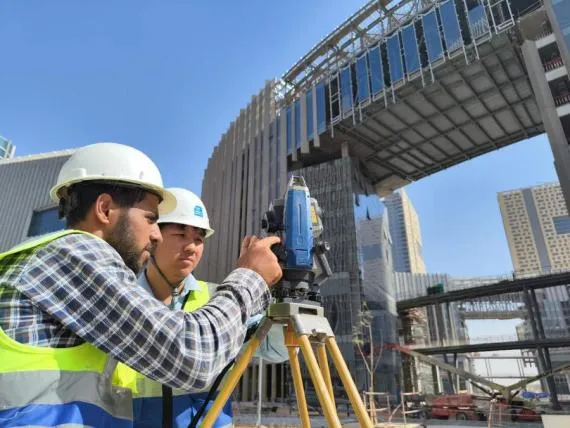CAIRO: China has succeeded in achieving “comprehensive development” and fruitful Belt and Road cooperation with many partner countries despite Western smear campaigns, an Egyptian expert on Chinese affairs has said.
“Economic and social development in China picked up since the country began implementing its reform and opening-up policy more than 40 years ago, and China has ever since achieved high growth rates,” Nasser Abdel-Aal, professor of Chinese language at Cairo-based Ain Shams University, told Xinhua in a recent interview.
Abdel-Aal, also director of the university’s Confucius Institute, said China has been seeking development partners abroad after achieving development success at home.
“The Chinese economic vision seeks to crystallize a just global system, and therefore it was necessary for China to launch global economic initiatives and urge major Chinese economic institutions to invest overseas,” Abdel-Aal said.
He said the Belt and Road Initiative (BRI) is the core of China’s policy of seeking common development via economic cooperation and win-win partnerships with overseas partners.
“The fruits of cooperation within the BRI framework have undeniably appeared in many countries,” he said.
The expert cited Egypt as an example where a huge 20-tower business district is being constructed by a Chinese firm at Egypt’s New Administrative Capital in eastern Cairo.
“Many Chinese companies have participated in Egypt’s development process over the past ten years, in the Suez Canal Economic Zone, the New Administrative Capital, the New El Alamein City and others,” Abdel-Aal said.
The results of BRI-related cooperation are “positive” despite the smear campaigns by countries led by the United States, he said.
Abdel-Aal noted that “there are still several challenges facing the Chinese economy, including the trade war launched by the United States, which seeks to distort China’s economic image globally.”
China and the United States, the world’s two largest trading partners, are indispensable to each other, and each of them is aware of the other’s role in the global economy, he said.
“The world is now one unit, and any failure or economic collapse in any region will affect the entire world,” he added.
China’s economic approach looks at the world from a different perspective. It does not strive to become “a superpower,” but seeks global cooperation and joint development, the expert said.
“This is why China has launched relevant initiatives such as the BRI, the Global Development Initiative and the Global Security Initiative,” he said.
The Asian Infrastructure Investment Bank and new economic platforms such as BRICS “open new horizons for development for all countries of the Global South and contribute to boosting the global economy,” Abdel-Aal added.
The Egyptian professor noted that China’s concept of human rights differs from that of the West, as China believes that the core of human rights is to provide a prosperous life for the citizens. “Therefore, China’s primary goal is the well-being of the Chinese citizens.”
He stressed that Chinese citizens are now enjoying the fruits of development and that China’s diplomacy is people-oriented and seeks to serve the interests of all Chinese people.
“China adopts ‘diplomacy for the people,’ which means that the Chinese government is at the service of the Chinese citizens inside and outside China,” he said.
China achieves comprehensive development, fruitful Belt and Road cooperation, says Egyptian expert
